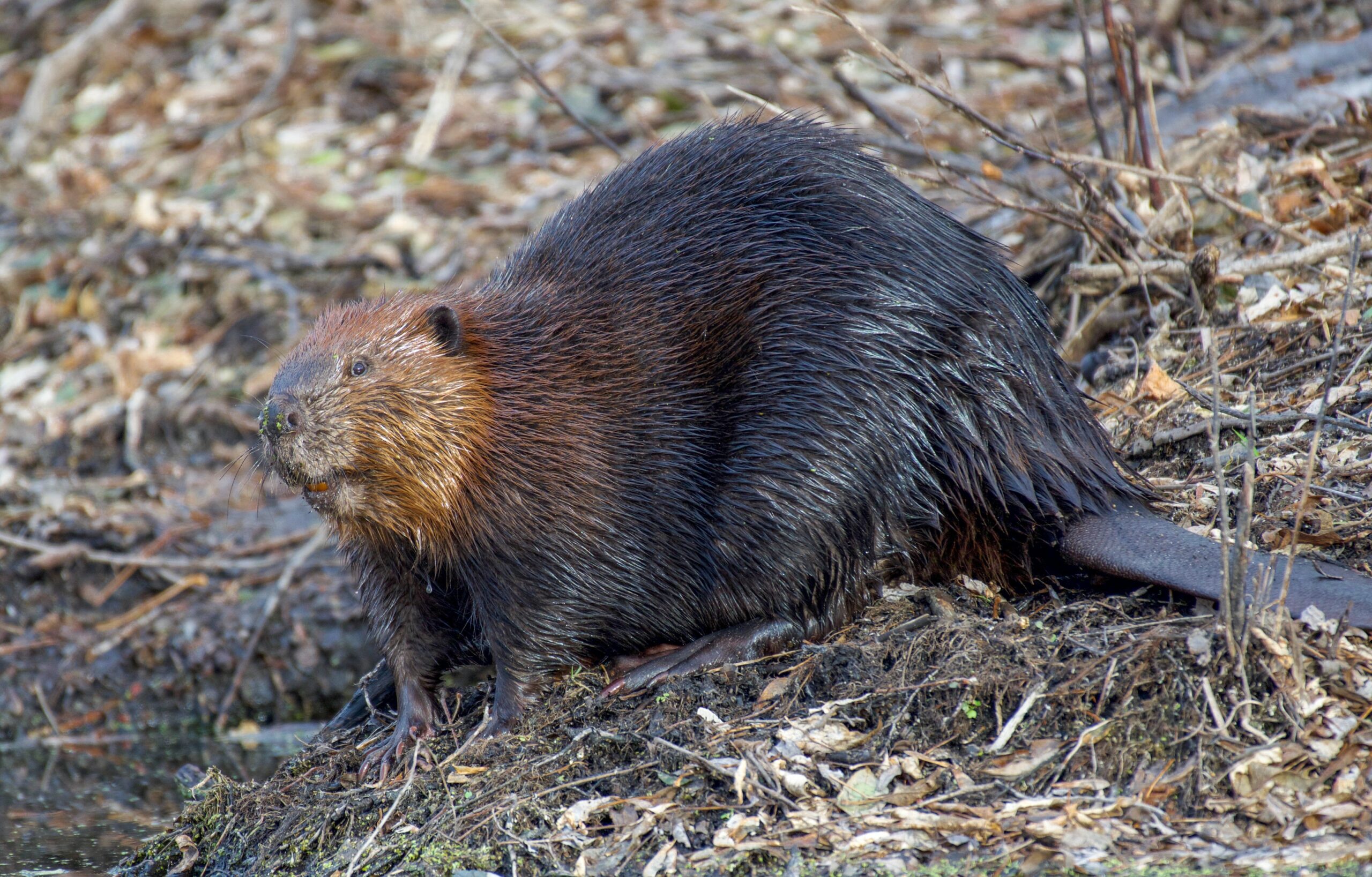
The Wildlife Trust are excited to announce news of a planned reintroduction of beavers at the Nene Wetlands nature reserve, expected at some point during the winter of 2024/2025.
As well as a fantastic opportunity to see beavers return to Northamptonshire for the first time in centuries, this hardworking species will play a role managing the wet woodland habitat in an enclosed area around Delta Pit, helping to continue reedbed restoration work and creating a dynamic and diverse wetland habitat that will benefit a range of other species. Excitingly, this also means having a population of these distinctive, charismatic rodents very close to people, bringing the opportunity for observation and education via the Trust’s visitor centre at Rushden Lakes.
Needless to say a lot of planning goes into the release of any native species, especially beavers. The area will need fully protecting with adequate fencing to enclose them, plus interpretation signage for visitors. The Trust will work closely with partners, including the Beaver Trust, to ensure the highest welfare standards.
Pivotal in the planning process so far has been the successful completion of a feasibility study along with receiving a licence from Natural England to release beavers into the enclosed area.
Matt Johnson, Wildlife Trust in Northamptonshire Conservation Manager, says: “This is an exciting and unique opportunity to see this iconic species return to the Nene Valley, bringing back both its natural habitat restoration skills as well as providing an opportunity for the visitors to see beavers in the wild at our most visited reserve.”
Excellent habitat engineers, in October 2022 beavers were officially recognised as a native species in England and a European protected species. Many Wildlife Trusts around the country now have beaver release schemes – through extensive research they have found that beavers and the landscapes that they generate benefit both people and wildlife for a wide variety of reasons.
FAQs
Why are we reintroducing beavers?
As a keystone species present in ever increasing numbers within the country there is significant existing scientific research showing the positive impacts of beavers on wetlands. At Delta Pit the presence of beavers will complement and reduce the need for the existing site management by staff and contractors in the removal of willow growth around the lake edges, restoring areas of reedbed and diversifying the marginal vegetation through foraging behaviours. This will benefit the wetland birds, for which the site is designated a SSSI, by creating more roosting and feeding habitat as well as other wildlife such as invertebrates and bats.
Releasing a family of beavers into one of our most public destination reserve will provide a unique opportunity for people to observe this iconic species on their doorstep, allowing for significant public engagement both on beavers and their ecology and the wider work of the Trust.
Why Nene Wetlands?
We had a feasibility study conducted by the Beaver Trust, and Delta Pit was chosen as the most ecologically suitable site. Given it is already fenced off with no public access to provide a refuge for waterbirds and other wildlife, there should be less disturbance than other more accessible parts of the Nene Valley.
Safe enclosure
The beaver fencing that will be installed is to an exact specification from Natural England that has been agreed following a full site survey with any risks appropriately considered, making sure we keep the beavers safe and that they don’t escape. All stock gates will be designed to an approved beaver proof specification.
What do they eat?
Contrary to popular belief, beavers only eat plants – not just trees but brambles and other plants too. They’re big fans of Himalayan balsam – an invasive non-native species that can spread easily and become problematic for our native wildflowers.
Will they destroy trees and will they build a dam?
They don’t kill or destroy trees, they coppice them – these grow back and provide more spaces for wildlife. Beavers are often known as eco-engineers, they are only doing what our rangers would be doing on our wetland reserve to provide the best habitat for wildlife, but will be doing it far better than we can!
They are unlikely to build dams in Delta Lake: beavers usually build dams in rivers to create lagoons in which they can better protect themselves from predators and in which they often build their family lodges which are accessed from underwater. The ideal depth of water a beaver seems to seek behind any dam is around 70cm (28”) so they will probably feel no need to dam here. In fact in other areas of the world such as Telemark in Norway where studies have been carried out, no damming activity has taken place at all in similar circumstances.
Post expires at 7:51pm on Tuesday October 1st, 2024

